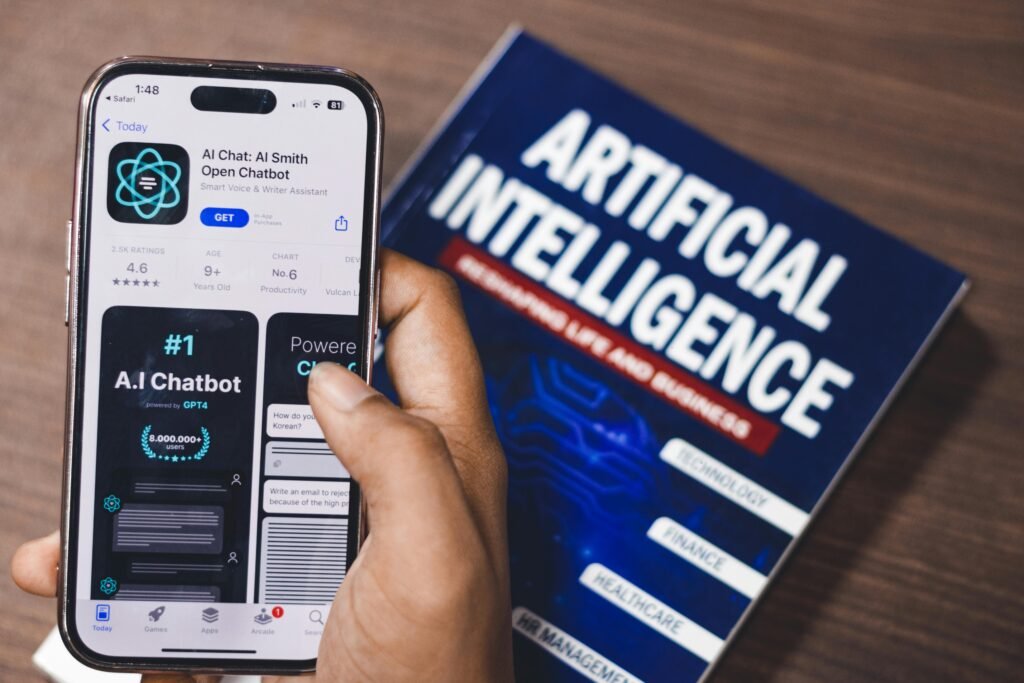Not so long ago, phones were just tools— used for calling, texting, and maybe checking email. But today, smartphones seem to know us better than we know ourselves. From suggesting the right words before we type them, to organizing our lives in ways we barely notice, it has become something quietly powerful happening behind those glass screens. No wonder, it’s artificial intelligence—AI—and it’s changing how people live, work, and even think. But how smart have these pocket-sized machines become? And where are they taking us?

The leap didn’t happen overnight. At first, it was subtle. Phones started learning when users left for work, or which app they opened most often. They began recommending songs based on mood or showing weather updates before one even asked. It wasn’t magic—it was machine learning doing its thing in the background.
AI has made smartphones more than just “smart”—it’s made them observant. They learn from how people use them. Over time, the phone becomes more tailored. It starts with finishing thoughts, sorting through clutter, and offering help without a prompt. The more a person uses their phone, the more intuitive it becomes.
For many, it feels like their phone has grown a brain of its own.
Most people don’t realize how many daily features rely on AI. Take the camera, for instance. These days, phones can adjust brightness, blur out the background, and even smooth skin without the user lifting a finger. It’s not just about better hardware—it’s about software that understands what makes a photo great.
Voice assistants have also come a long way. What started as awkward, robotic responses has turned into near-natural conversations. People are using their phones to set reminders, send texts, play music, and even manage home devices—all with a simple voice command.
Typing has evolved, too. Predictive text can now guess entire sentences, sometimes eerily close to what someone was going to say. For those who speak multiple languages, phones now switch between them mid-sentence without needing to adjust settings. It’s seamless, and it saves time.
Real-time translation, sleep tracking, traffic alerts, health summaries—these are just a few examples. And most of the time, people don’t even think twice about how they happen.
With every software update, phones are getting a little smarter. Not just faster or more powerful—smarter. They’re starting to behave less like machines and more like thoughtful assistants. With this, we could even imagine a future where smartphones become actual life coaches. They might track eating habits, suggest break times based on stress levels, or gently nudge users away from doom-scrolling late at night.
Generative AI is now entering the picture, too. Some phones already allow users to create images or write emails using just a few keywords. Others can summarize long texts or generate content on the fly. These tools, once reserved for desktops or fancy tech setups, are now literally in everyone’s pockets.
But it’s not all smooth sailing. With smarter phones comes the question of privacy. How much data is too much? Can all this convenience go too far? It’s a fair concern, and one that many tech companies are now addressing by moving some AI processing to the device itself, so personal information doesn’t always go to the cloud.
No matter what, a smartphone is still a mobile phone. But what it can do today compared to just five years ago is staggering. It helps people stay connected. It guides them through traffic. It plays their favorite songs, reminds them to take breaks, and even offers a little company through a digital voice. For better or worse, it’s become part of daily life. AI hasn’t made smartphones perfect. They still crash, freeze, or misunderstand a sentence now and then. But there’s no denying that they’ve gotten better at blending into the rhythms of human life.
So, how smart is your smartphone? Probably smarter than you think. And it’s only getting started.